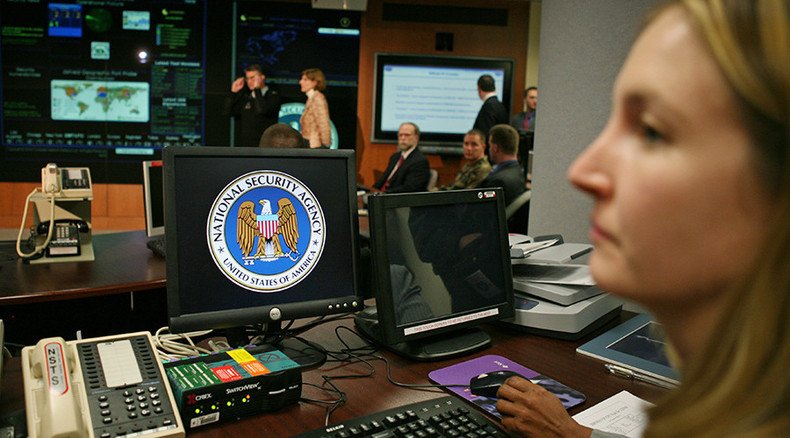‘It’s time to move’: Federal judge eager to challenge NSA bulk snooping again

A federal judge who called NSA’s surveillance practices “almost Orwellian,” says that he found a way to revive a constitutional challenge to the controversial program after a federal court lifted his 2013 injunction blocking the program.
In 2013 Richard J. Leon ruled that the NSA’s bulk snooping was likely unconstitutional. At the time he put his ruling on hold pending review by an appeals court.
US District Judge Richard Leon, hears arguments & evidence, dismisses ALL allegations against CFP Board @CFPBoardpic.twitter.com/OzjAlaYsUg
— Charlie Fitzgerald 3 (@CharlieFitzIII) July 29, 2015The decision was successfully appealed by the government only last week. On August 28, the US court of Appeals for the District of Columbia Circuit ruled that plaintiffs Larry Klayman and Charles Strange, lacked standing to sue as they could not prove their phone records were among those swept up by the secret program.
READ MORE: Federal court rules in favor of NSA bulk snooping, White House happy
Now, Leon suggests that they should alter their case by including the customers of Verizon Business Network Services, a unit that participated in the program.
Klayman and Strange challenged the NSA’s bulk collection program under Section 215 of the USA Patriot Act. The controversial section expired at the end of May, after a bipartisan group of lawmakers filibustered it to prevent its extension.
"This court believes there are millions and millions of Americans whose constitutional rights have been and are being violated, but the window...for action is very small....It's time to move," Leon said at status hearing on Wednesday.
The judge stressed that the bulk collection program expires on November 29 as it transitions its snooping to phone companies leaving the door open for the government to direct queries with court approval.
"The clock is running and there isn't much time between now and November 29," Leon said.
Leon told the lawyers that he was eager to move quickly, scheduling another hearing, which could potentially take place as early as next week.
"Don't go on any vacations between now and November 29," Leon said. "We are going to move expeditiously in this court."
Rodney Patton, a lawyer appearing for the government, warned Leon to not move too quickly but instead wait to act until the official mandate from a higher court, which is necessary for Leon's court to once again take up the case. The mandate is expected towards the end of October.
Leon made clear Wednesday that the court’s decision has not changed his conclusion that the program was unconstitutional.
“This court has ruled. This court believes that tens of millions of Americans’ constitutional rights have been — and are being — violated,” Leon told attorneys. “If the court finds jurisdiction, I don’t have to write another opinion on the merits. I don't have to hear new arguments on the constitutional issue," the judge added. "It has been written.”
The NSA’s phone record collection program was kept secret from the public until a former contractor for the agency, Edward Snowden, disclosed it to the media in June 2013. The program involved capturing the metadata of millions of phone calls, such as call length and the numbers that were dialed.
The Obama administration confirmed the program’s existence in June 2013 following Snowden’s revelations.













